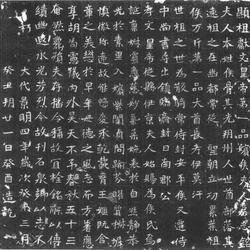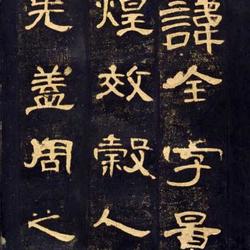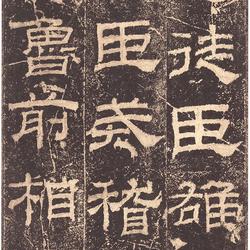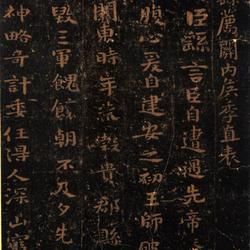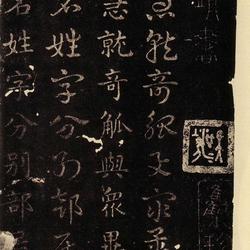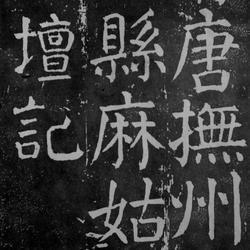The full name of "Cui Jingyong's Epitaph" is "The Epitaph of Cui Gong, the General of the Wei Dynasty who oversaw the military camps in the Yingzhou and the governor of Zhenglu, the Taishi doctor Linqing." Stone inscription of the official book of the Northern Wei Dynasty. Engraved in the second year of Xiping. It was unearthed in Anping in the 18th year of Emperor Kangxi's reign in the Qing Dynasty and was destroyed soon after. The pen is soft on the outside and strong on the inside, with a lively structure and a beautiful and colorful style. "Hairilou Zhacong" commented: "The writing style of this Zhi is slightly closer to that of "Li Chao", but not as dense as that of "Diao Huigong"... The clear and smooth outer complex is similar to "Sima Jing and His Wife"." The handed down original stone rubbings have regularity. , Liu E, Liu Jianzhi, Tao Xinyun, Fei Nianci, Pan Ning and others.
"Cui Jingyong's Epitaph" as a whole
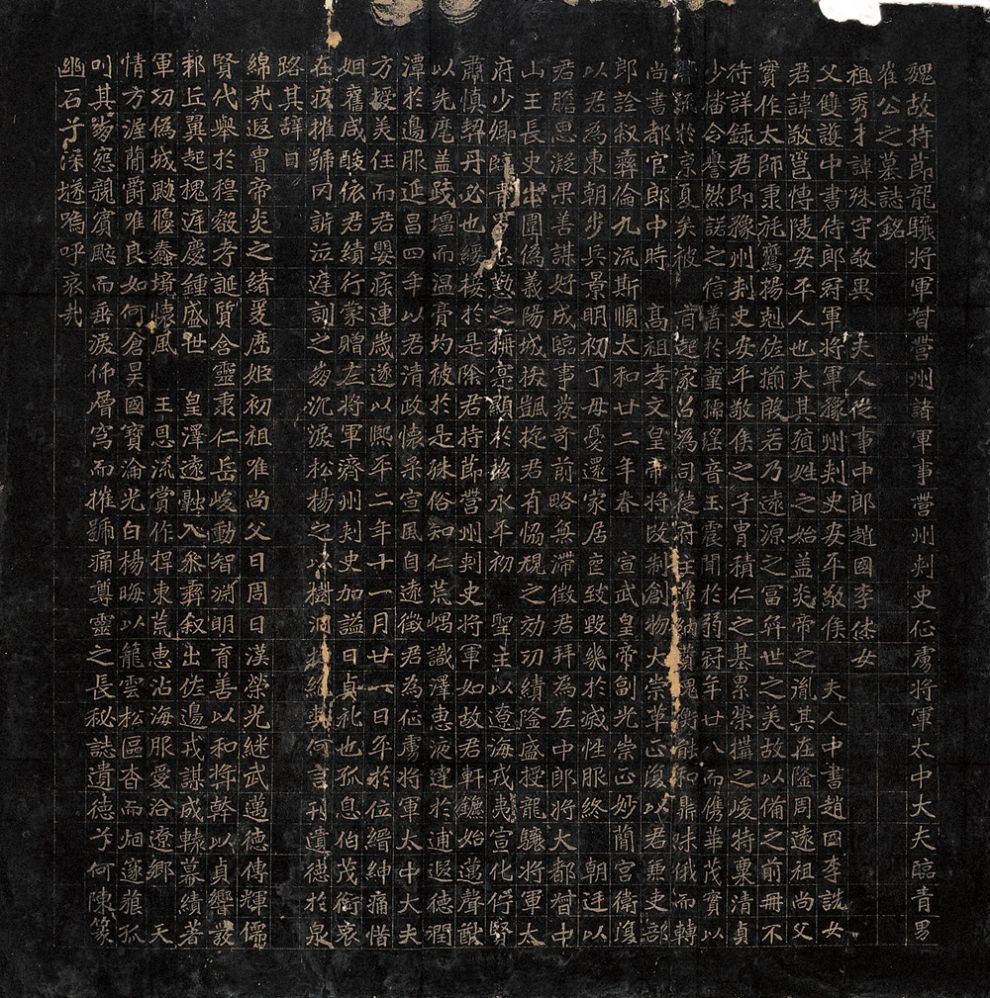
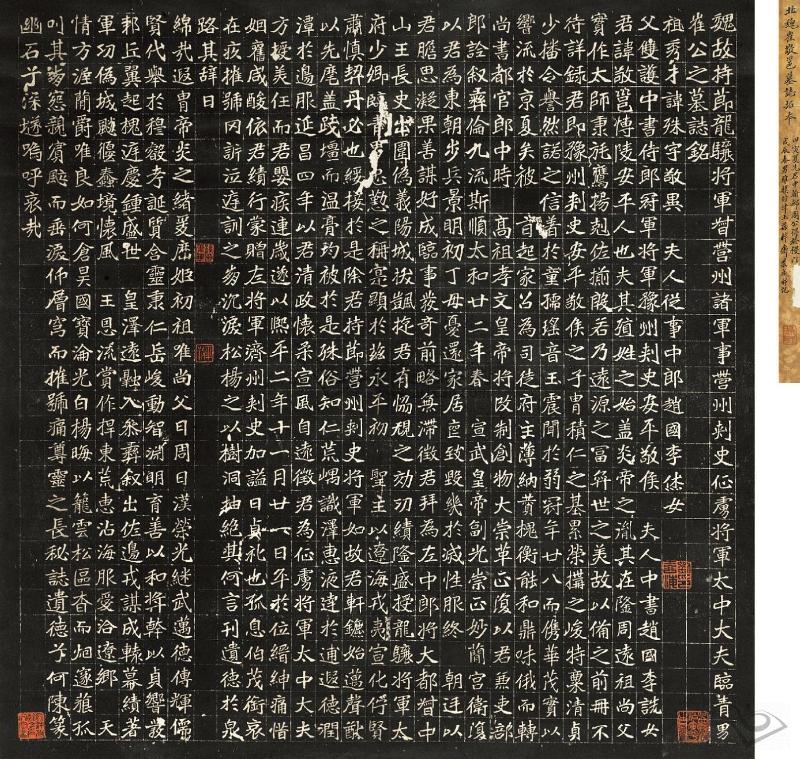
Part of "Cui Jingyong's Epitaph"
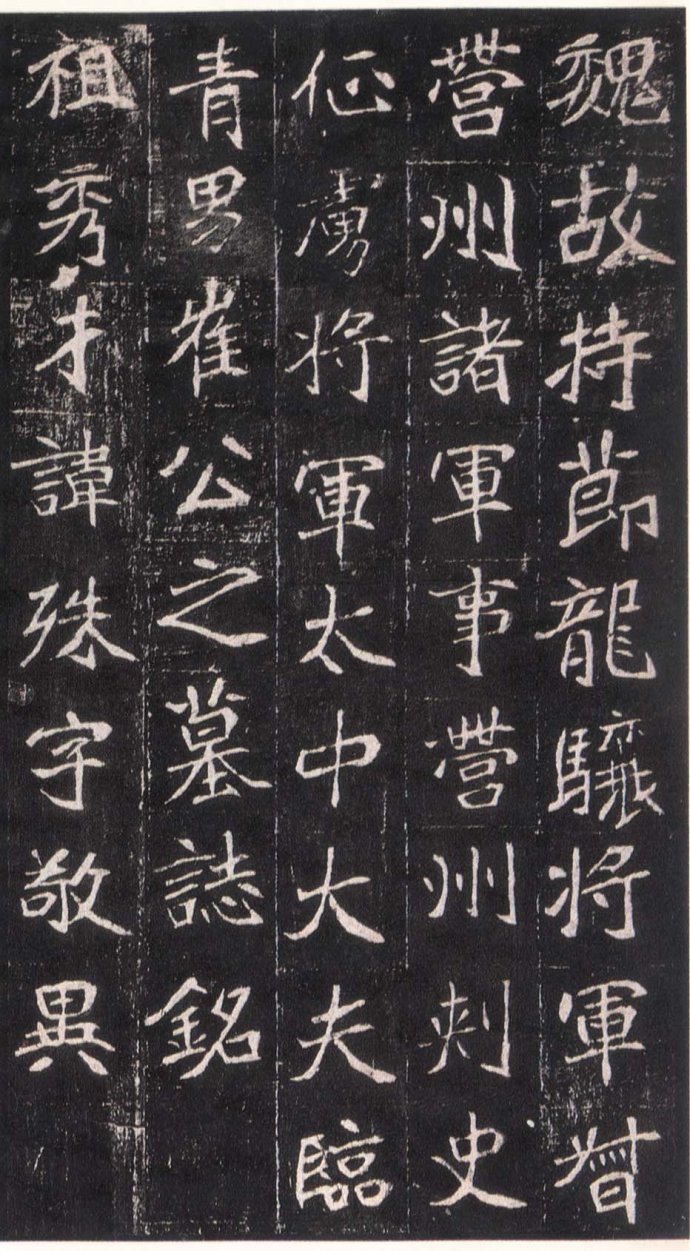
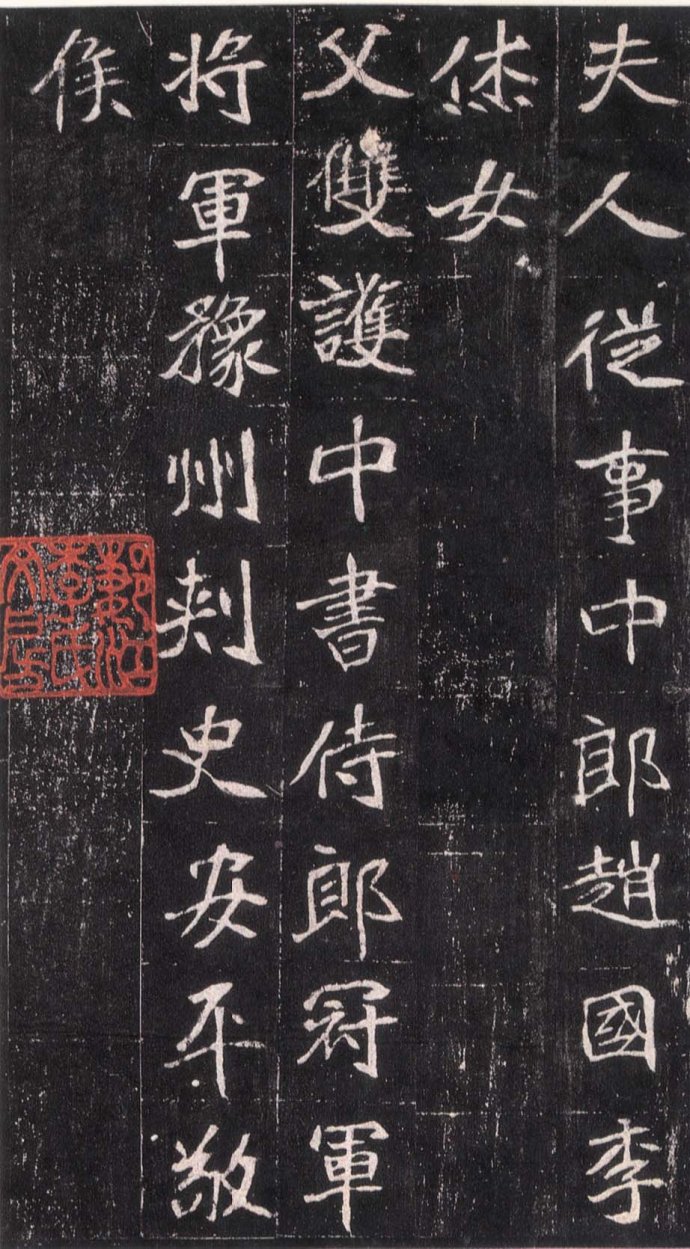
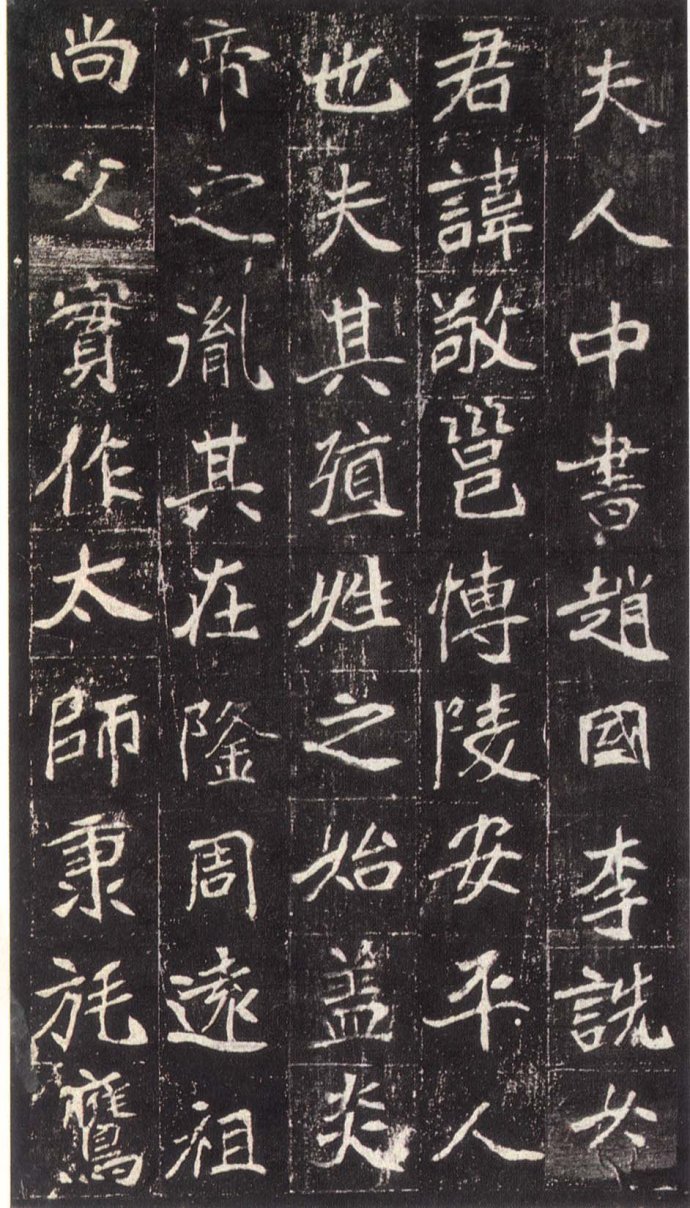
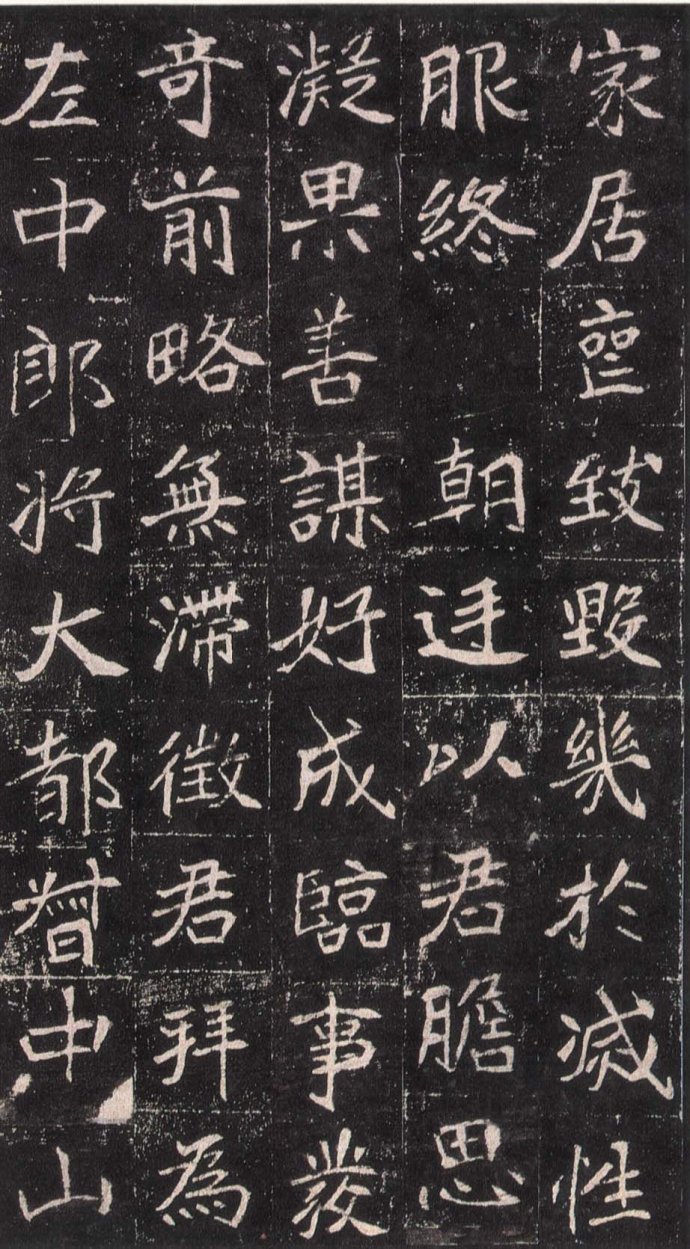
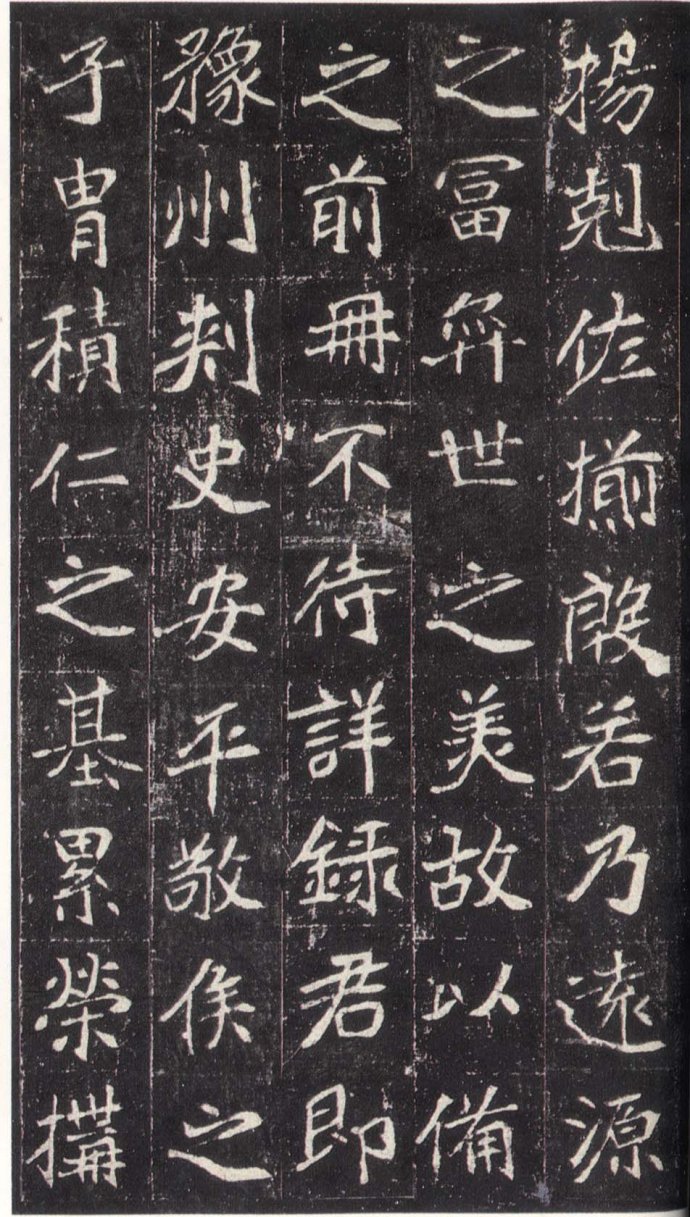
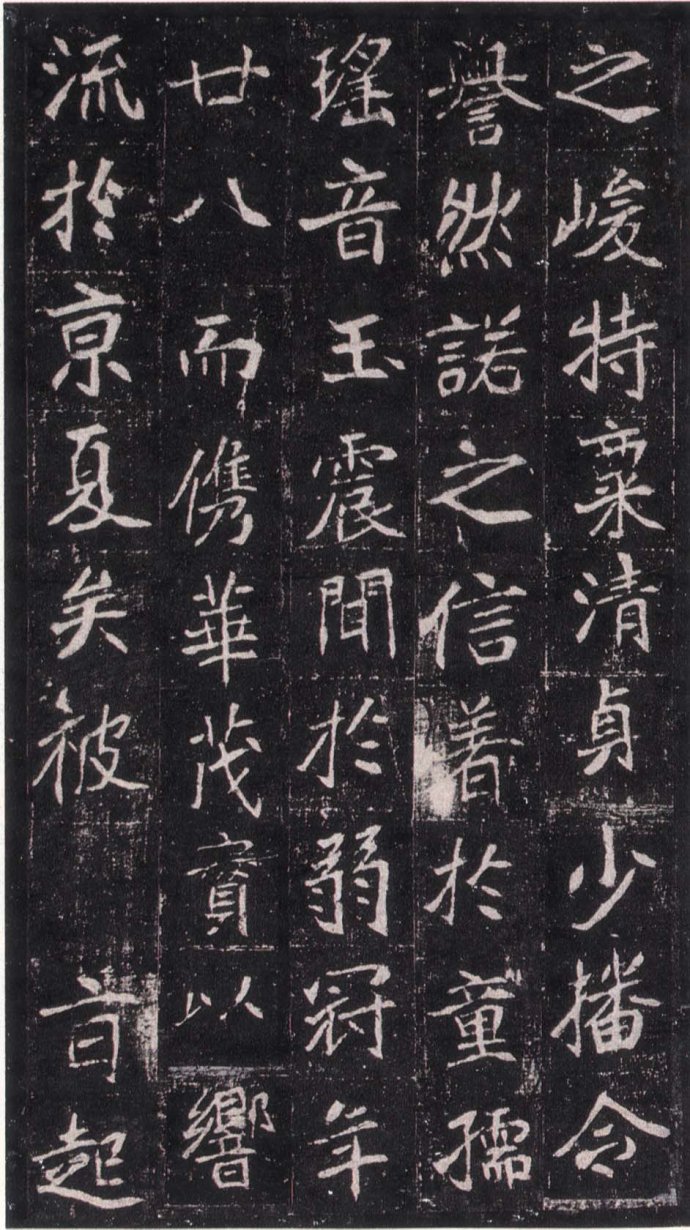
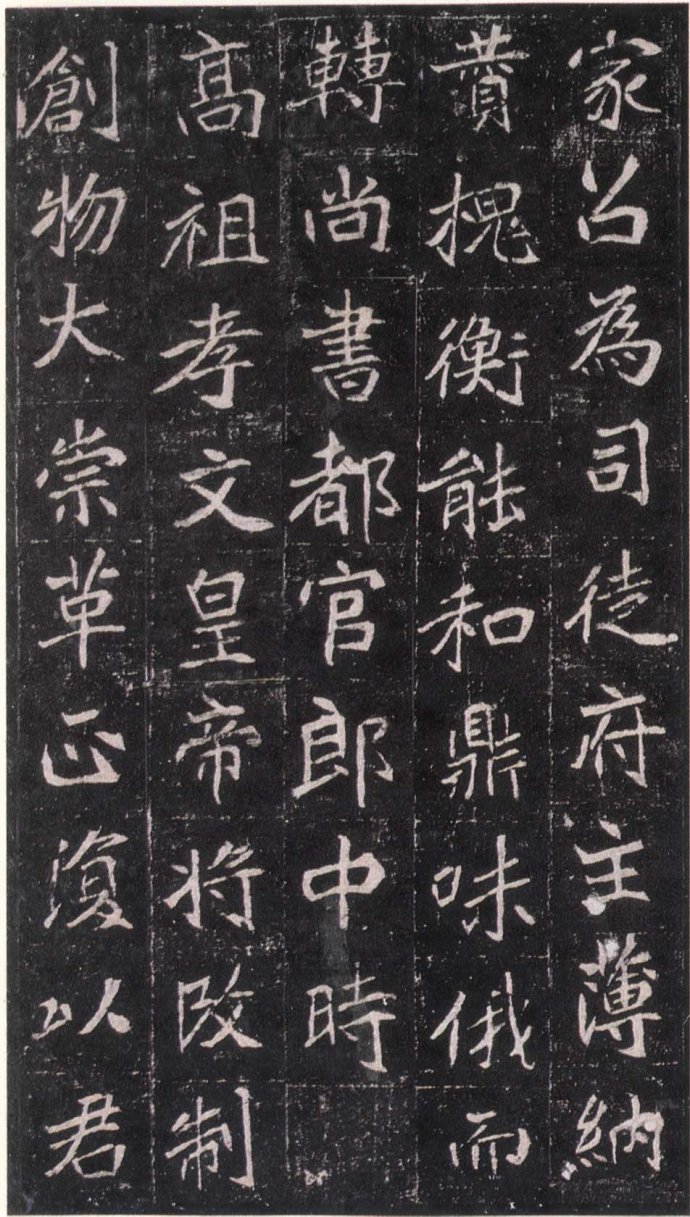
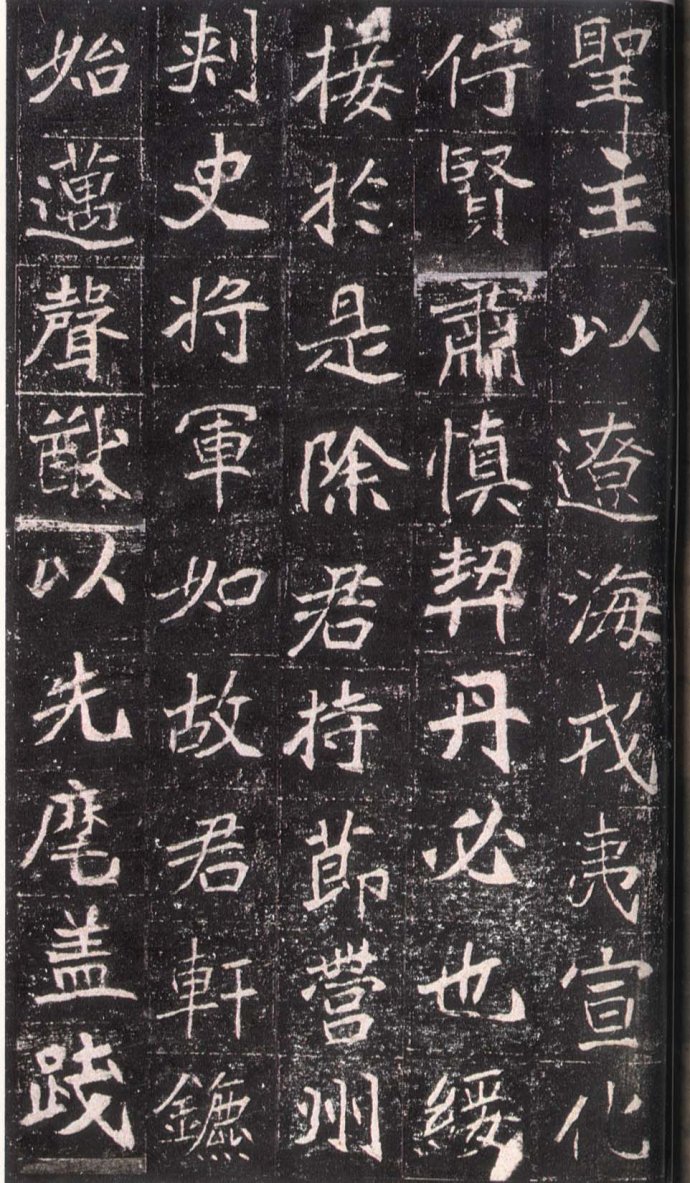
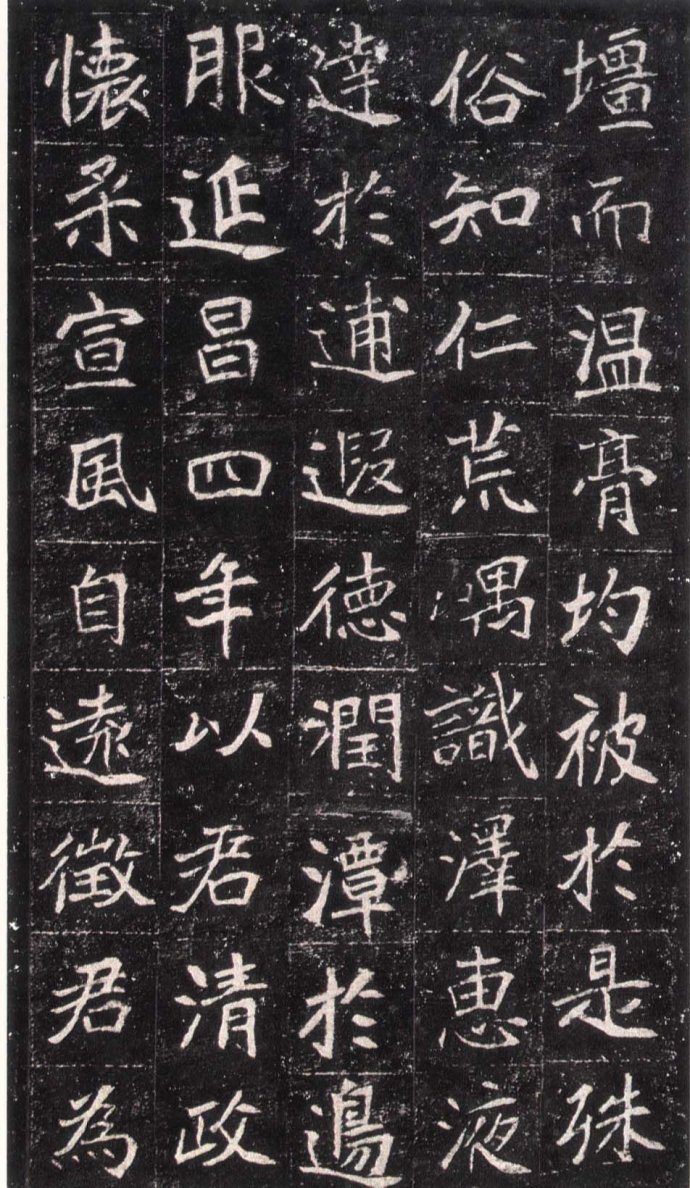
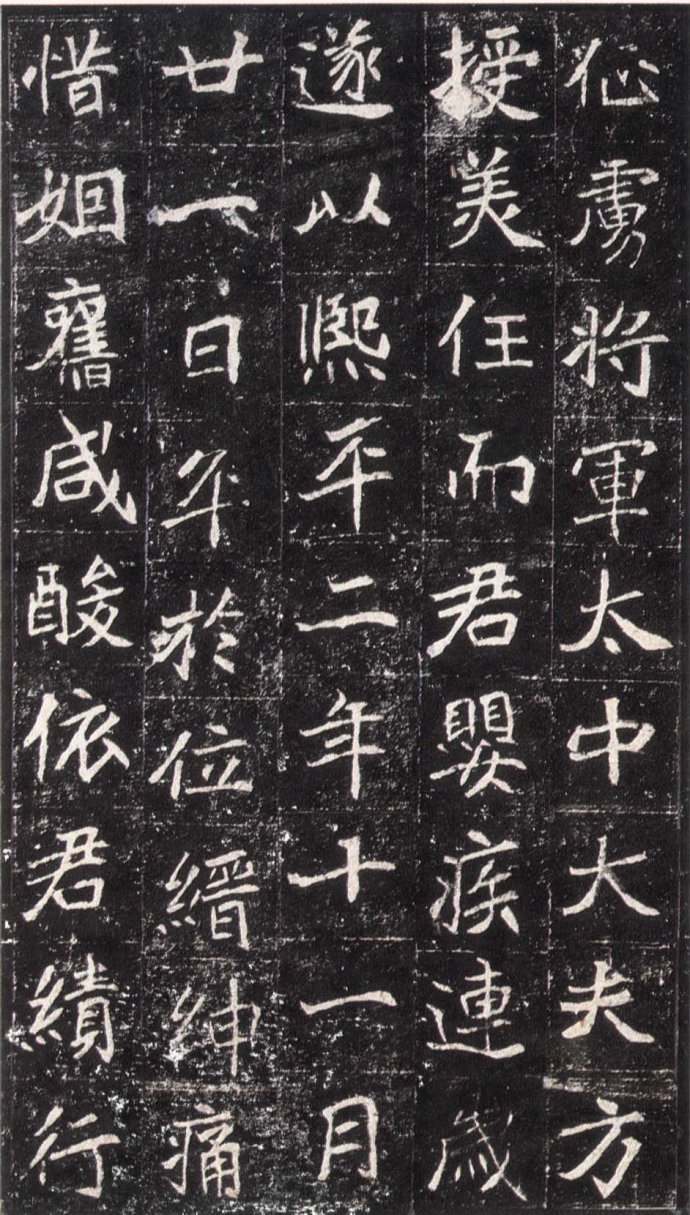
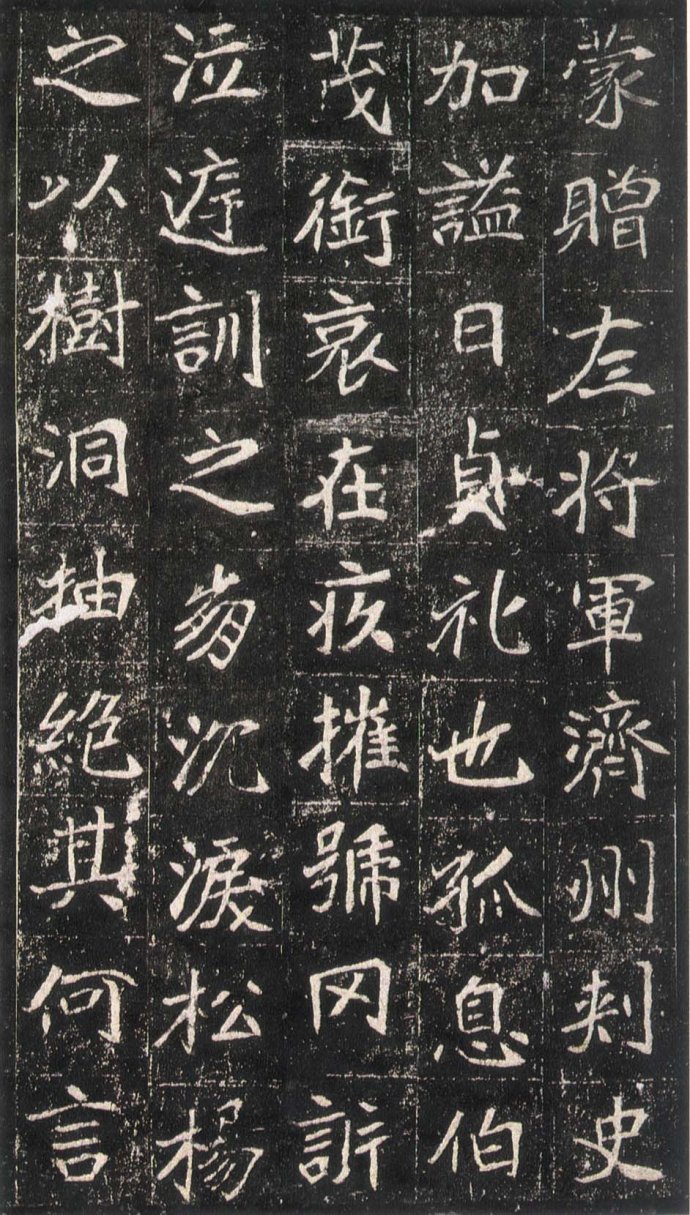
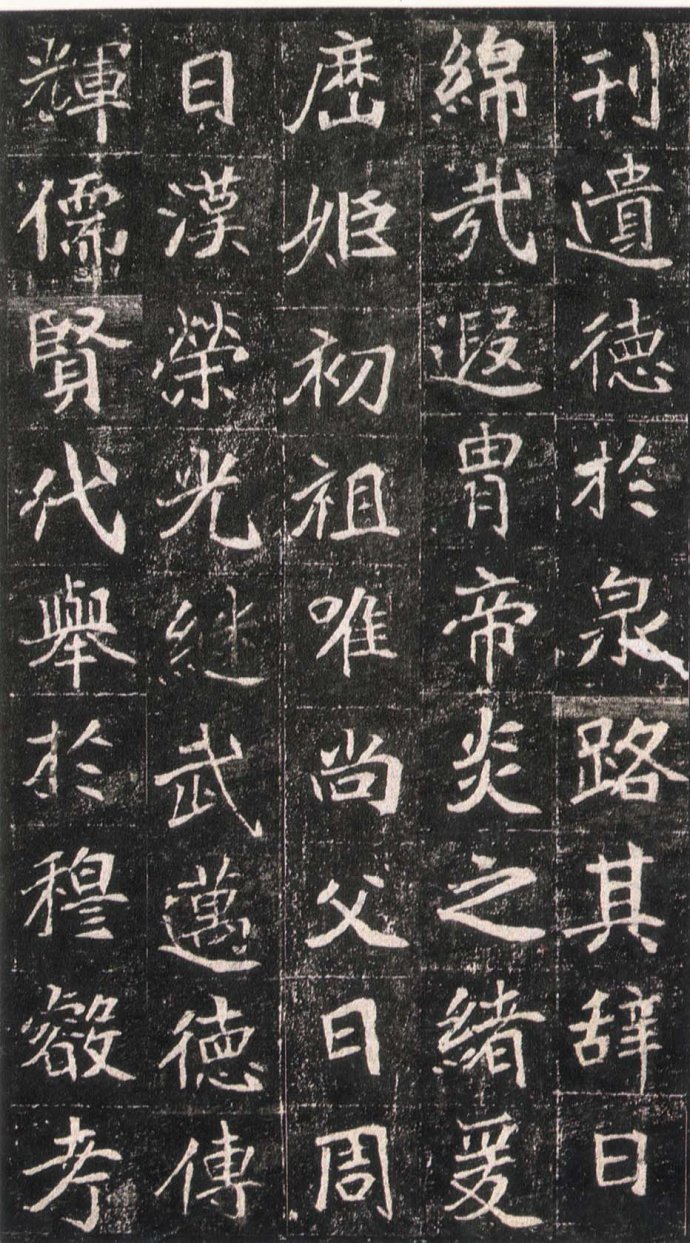
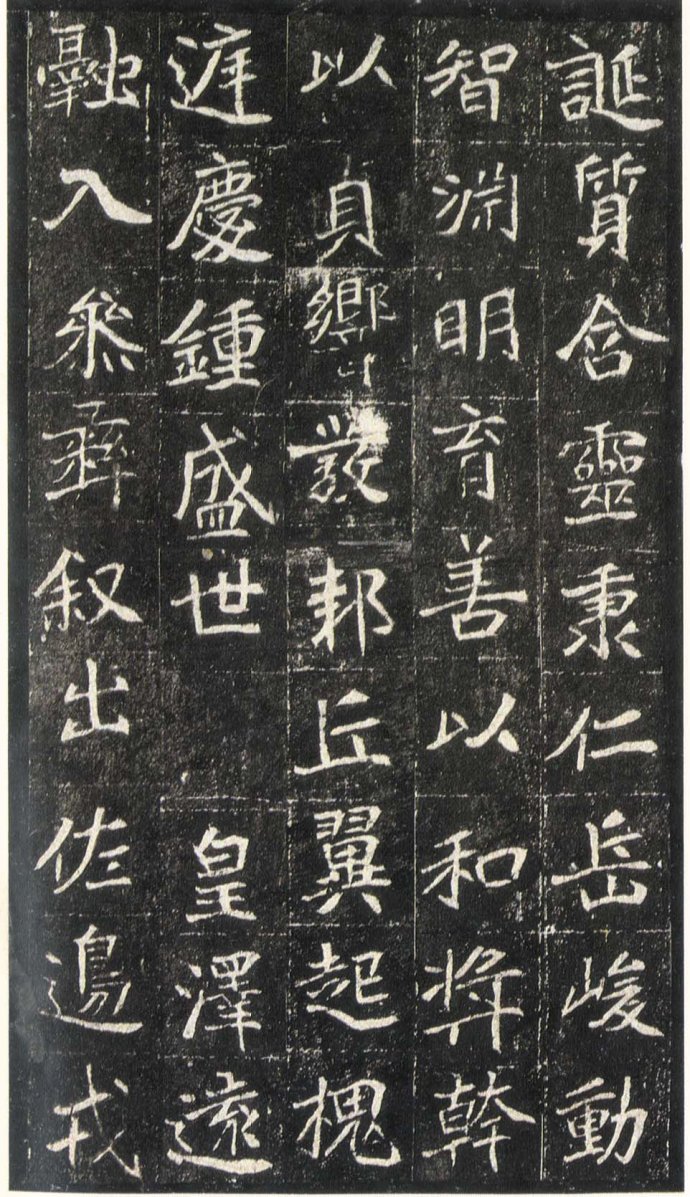
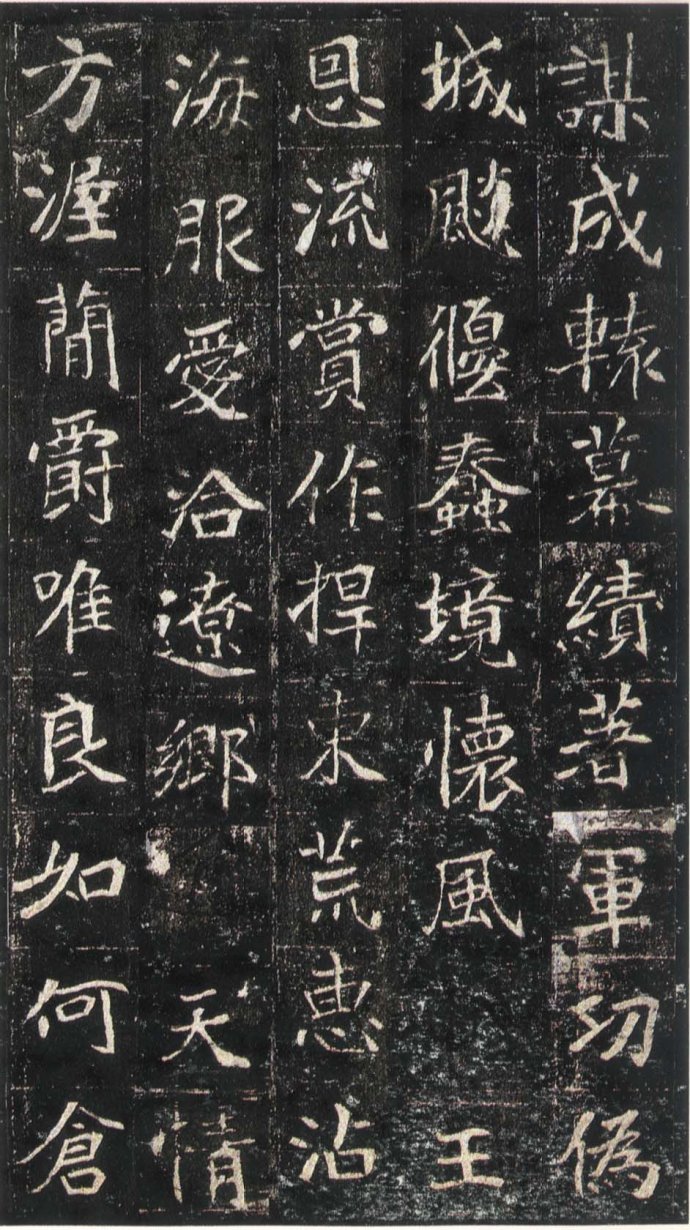
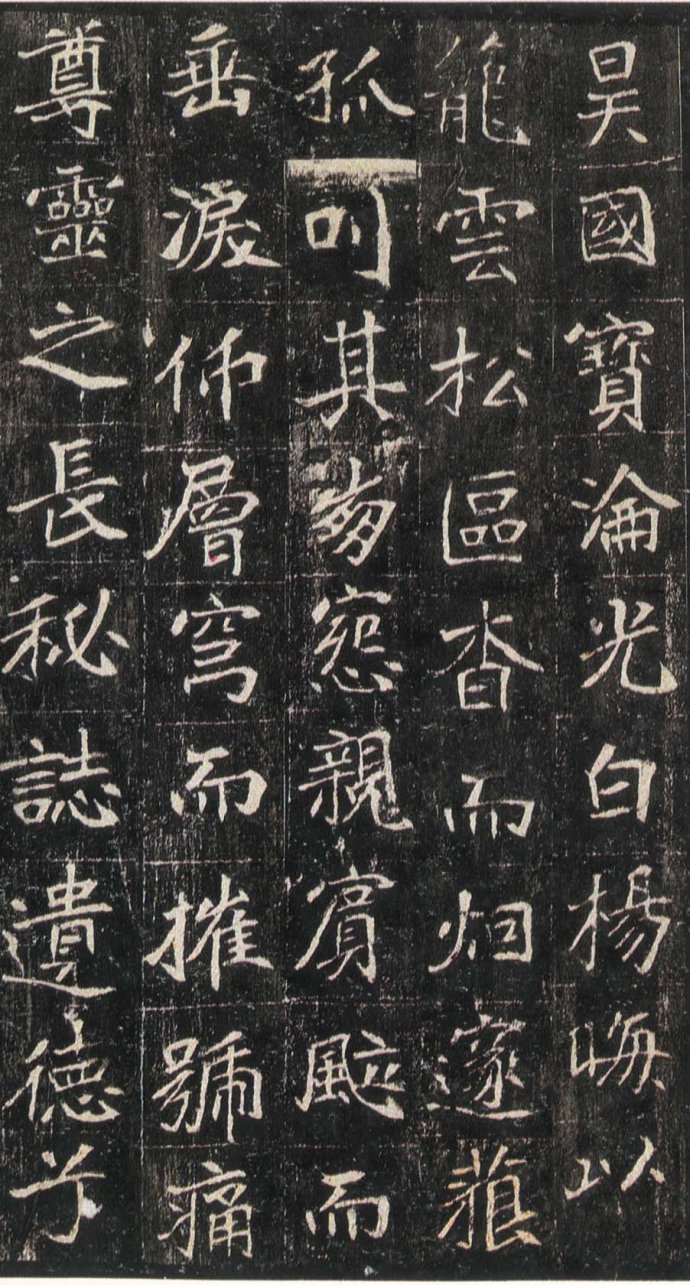
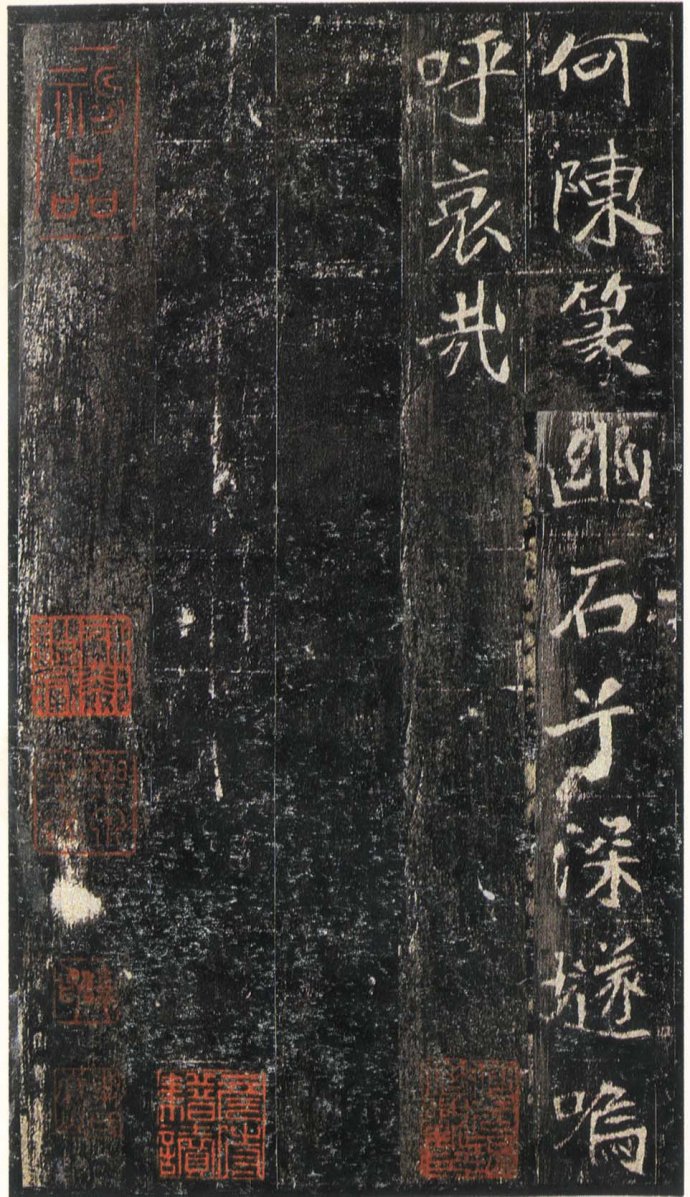
Among the epitaphs of the late Northern Wei Dynasty, the calligraphy of "Cui Jingyong's Epitaph" belongs to the category of Fang Jin and Xiongqi. His brushwork is clear and vigorous, his writing is round and round, his method is careful but not rigid, his structure is neat and square, and the whole text is arranged neatly. It is even and the weather is quiet and serene. There is a pitch and lift in one stroke, with clear weight and strong dynamic feeling. The strokes are thin, vigorous, and clear, and the large and main strokes are mostly executed with heavy, astringent, and censorship techniques. Looking at this calligraphy, it is like Lin Zunyi. "Cui Jingyong's Epitaph" is a masterpiece in the Northern Wei Dynasty. It has an elegant and simple structure and a round and vigorous writing style. It has the reputation of "the crown of the memorial stones of the Six Dynasties".
Explanation:
General Long Xiang of the old Wei Dynasty was in charge of all the military affairs in the camp. The governor of the camp was Zhenglu. His wife was the daughter of Li Xiu, a minister of the state of Zhao. He was protected by both his father and his father, and he was the minister of Zhongshu, the champion general, and the governor of Yuzhou, Anping Jinghou. His wife was the daughter of Li Xu of the State of Zhao in Zhongshu. The king is taboo and respects Yong, and he is a native of Anping. The husband's colonial surname was the beginning of Emperor Yan's Yin. During the Longzhou period, his distant ancestor Shangfu served as the Grand Master, commanding the Ying Yang and controlling the Yin. If it is the source of wealth and the beauty of the world, it is prepared for the previous book and does not need to be detailed. You are the son of Anping Jinghou, the governor of Yuzhou. He has a foundation of benevolence, a majestic structure with many honors, a special gift of purity, and a rare reputation. The letter of Ran Nuo is written by children, and the sound of Yao jade is heard by weak crowns. At the age of twenty-eight, he is handsome and handsome, and his reputation has spread throughout Beijing and Xia. He was ordered to start a family and was called to be the chief secretary of Situ Mansion. He praised Huaiheng and was able to harmonize with Dingwei. He was transferred to Shangshu Duguan Langzhong. At that time, Emperor Xiaowen, the great ancestor of the emperor, reorganized the system and created things, advocated reform and reform, and restored the title of king and official. Interpretation of Yilun, Jiuliu Sishun. In the spring of the 22nd year of Taihe, Emperor Xuanwu's deputy Guang Chongzheng, Miaojian Palace Guards, and the emperor returned to the infantry of the Eastern Dynasty. At the beginning of Jingming Dynasty, Ding's mother returned home worriedly, and she was in mourning and was ruined, almost annihilating her life. At the end of the service, the imperial court regarded the king as a courageous thinker, good at making good plans, and able to act unexpectedly when things happened, and never lag behind in making plans. Zhengjun worshiped him as Zuo Zhonglang, the general, the governor, and the king of Zhongshan, Changshi. He went out of the siege of Pseudo-Yiyang and conquered the city in triumph. If you have the effect of coordinating regulations and have prosperous achievements, you will be awarded the title of General Longxiang, Taifu Shaoqing Linqingnan. The title of loyalty and honor is truly evident here. At the beginning of Yongping Dynasty, the Holy Lord used the Liaohai Sea to invade the barbarians, Xuanhua Yixian, Sushen Khitan, and Sui Sui took over. So he excepted the governor of Jieying Prefecture, and the generals remained as before. When Junxuan's cauldron begins to move forward, before the sound of Youyou is heard, his troops cover the frontier, and the warm ointment is covered with it. So he knows benevolence from the world, knows the lake from the deserted mountains, the path of beneficial liquid is in Buxia, and the virtue moistens the pool in the border service. In the fourth year of Yanchang's reign, the emperor was clear in his administration and gentle in his administration, and promoted the trend from far away. The emperor was appointed Taizhong Dafu, the general who conquered the captives. Fang was given a beautiful appointment, but the king's infant was ill for several years. So he died on November 21, the second year of Xiping. The Jin gentry regretted that the old marriage was sour, and he acted in accordance with the emperor's performance. He was given the title of General Zuo, the governor of Jeju, with a posthumous title of Zhen, which is also a courtesy. Lonely breathing Bo Mao, holding the title of sorrow in guilt, destroying the trumpet but not breaking, weeping for the collapse of the court training, crying for the pines and poplars, what words can be extracted from the hole, and posting the legacy of virtue on the spring road. His words said: Mianzai Xiazhou, Emperor Yan's mood, Yuanli Jichu, the ancestor is the father. The Zhou Dynasty is the Han Dynasty, glory and glory follow the military, virtues are passed on, and Confucianism and sages are promoted. According to Mu Ruikao, the essence of birth contains spirit, he is benevolent and noble, and his wisdom is profound. Cultivate the good with harmony, reward the virtuous with chastity, make the sound of Qiu Qiu, and the wings of Huai Ting. During the prosperous period of Qingzhong, the emperor was far away from home, joined the Yi Xu, and came out to assist the border troops. He planned to build a tent, achieved military exploits, fought for the city, and carried the wind in his stupid state. Wang Enliu rewarded him for defending the Eastern Wilderness, benefiting from the sea service, and loving the Liao Township. The sky is bright, the nobles are good, but the national treasures are lost. The white poplars are dim and covered with clouds, the pine areas are dim and the smoke is deep, the scorn is calling them to burst into resentment, relatives and guests are weeping, looking up to the sky and shouting, the pain is the long secret of the spirit, where are the aspirations and virtues left, the seal is quiet The stone is deep and the tunnel is deep. Alas!

